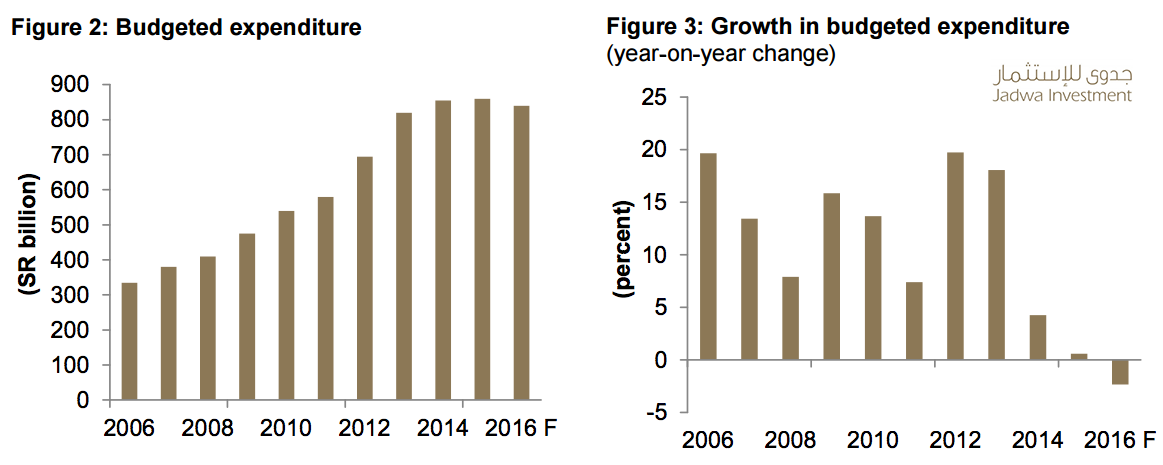Saudi Arabia’s 2016 budget marks a shift in fiscal policy toward prudent but tough decisions for the future of the Arab world’s largest economy.
In a recently released note to investors, Riyadh-based Jadwa Investment said the 2016 budget still provides a high level of government spending to drive the Saudi economy. Budgeted at $226b, the amount is a commitment to high spending despite the sustained environment of lower oil prices but nevertheless is, “set to play a vital role in supporting the economy in 2016.”
A projected deficit of $87 billion will be financed using “a combination of Saudi Arabian Monetary Agency’s (SAMA) huge stock of net foreign assets, and domestic debt,” Jadwa notes. The report estimates an average price in 2016 of $42.8 pb for Brent and production of 10.2 million barrels per day which are, “consistent with the revenue projections contained in the budget.”
Saudi Arabia will not halt what it sees as critical spending on current needs, in addition to making policy changes that will positively impact the economy in the long term. The Kingdom will spend 25% of the entire budget on military and security services, the highest of any sector. Saudi Arabia’s ongoing war in Yemen, as well as commitments to regional stability and border security are expensive but seen as needed by the government.
Education and healthcare account for 35 percent of total spending in 2016, presenting huge opportunities in those sectors.
Saudi Arabia’s finance minister Ibrahim al-Assaf spoke with the Arabic-language Al-Eqtisadiah newspaper on Monday, saying the Kingdom must “rationalize unnecessary spending…This requires changes to focus on essential expenditures.” Minister al-Assaf also said Saudi Arabia plans to issue international bonds in 2016 to help maintain the solvency of the Kingdom’s banking system.
Additionally, Reuters reports that Saudi Arabia will raise domestic energy prices and adjust subsidies for industry and consumers, a move that has long been considered the “third rail” for Saudi citizens. The decision to cut subsidies was unexpected.
“The kingdom is committed to implementing programs to diversify sources of income and decrease dependence on oil as a main source of revenue…Our vision for economic reform focuses on raising the efficiency of government spending, taking advantage of economic resources and increasing returns on government investments,” King Salman said in a speech last week.
Click here to read the full Jadwa Investment report on the 2016 budget.









